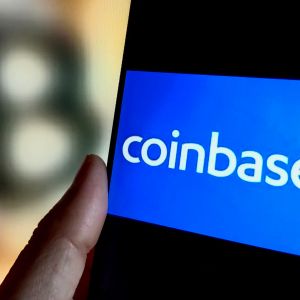BitcoinWorld Alarming Doubts: Bank of England’s Andrew Bailey Questions Need for Digital Pound In a surprising turn of events for those following the UK’s exploration into central bank digital currencies, Bank of England (BOE) Governor Andrew Bailey has cast significant doubt on the fundamental need for a digital pound aimed at consumers. This statement comes despite the central bank actively working on the design phase of a potential UK CBDC , sparking considerable debate about the future of money in the nation. Andrew Bailey Questions the Necessity of a Digital Pound Governor Bailey’s remarks, as reported by Bloomberg, highlight a key point of contention in the global CBDC discussion: is a new form of central bank money truly required to leverage technological advancements? He stated he is ‘not convinced that creating new forms of money is needed to benefit from technological advances.’ This perspective from the head of the Bank of England signals a potential slowdown or even a re-evaluation of the project’s trajectory, at least concerning its retail application. For years, central banks worldwide have been exploring CBDCs as a response to the rise of private digital currencies (like stablecoins) and the decline in cash usage. The idea is to provide a state-backed digital alternative that maintains the safety and stability of central bank money in a digital age. The Bank of England , through joint work with the Treasury, has been developing proposals for a potential digital pound , often dubbed ‘Britcoin’ by some media, outlining its potential features, uses, and implications. What is the UK CBDC Project Status? Despite Governor Bailey’s skepticism, the official stance remains that the Bank of England is still very much in the design stage. A consultation paper was released in February 2023, outlining the potential model and seeking feedback from the public and industry. Key aspects under consideration include: Purpose: To provide a safe, accessible, and convenient form of digital central bank money. Technology: Exploring different technological approaches, likely involving a ledger managed by the BOE but with private sector firms (Payment Interface Providers) handling customer interactions. Features: Potentially offering programmability, offline functionality, and strict privacy safeguards. Limits: Likely implementing limits on individual holdings to prevent disintermediation of commercial banks. The consultation period closed in June 2023, and the BOE has been analyzing the responses. However, Governor Bailey’s recent comments suggest that the decision on whether to actually issue a UK CBDC for retail use is far from made and appears to be facing significant internal debate at the highest levels of the Bank of England . Why the Doubt? Exploring the Challenges and Alternatives Governor Bailey’s hesitation likely stems from several significant challenges and questions surrounding retail CBDCs: Proving the Need: With a robust existing digital payment infrastructure (faster payments, debit cards, online banking), the marginal benefit of a new central bank-issued digital currency for everyday transactions is questioned by some. Are the stated benefits truly compelling enough to justify the cost and complexity? Technological Alternatives: As Bailey mentioned, can technological advances improve the existing payment systems without needing a fundamentally new form of money? Enhancements to current systems, open banking initiatives, and private sector innovation might achieve similar goals. Privacy Concerns: A major public concern is surveillance. While the BOE has stressed privacy safeguards, the idea of a central authority having potential oversight of transactions worries many. Financial Stability Risks: Critics worry a successful digital pound could lead to ‘digital bank runs,’ where depositors rapidly move funds from commercial banks to the safer central bank digital money during times of crisis. Cost and Complexity: Building and maintaining the infrastructure for a nationwide retail CBDC would be a massive, costly, and complex undertaking. Public Acceptance: Gaining widespread public trust and adoption for a new form of money is a significant hurdle. These are valid points that policymakers must grapple with. Bailey’s comments bring these challenges to the forefront, suggesting the initial enthusiasm might be tempered by the practical realities and potential downsides. The Future of Money Debate Continues The discussion around the future of money involves more than just CBDCs. It encompasses the role of cash, the evolution of private digital payments, stablecoins, and potentially even cryptocurrencies. Governor Bailey’s skepticism about the retail digital pound doesn’t necessarily mean the Bank of England is abandoning the exploration of digital currencies entirely. They are also involved in wholesale CBDC research, which is focused on interbank payments and settlement, an area where the use case might be clearer for improving efficiency and reducing risk in financial markets. The retail CBDC project, however, touches every citizen and business, making the debate about its necessity and design crucial. The pause implied by Bailey’s remarks allows for further consideration of the alternatives and a deeper dive into whether the potential benefits truly outweigh the significant risks and costs. What Does This Mean for the UK? For now, the digital pound remains a possibility, not a certainty. Governor Andrew Bailey ‘s comments indicate that the path forward is unclear and subject to rigorous debate within the Bank of England and the UK government. It means: The final decision is likely further away than initially anticipated. The focus might shift towards exploring how technology can enhance existing payment systems. The UK’s approach to the future of money will continue to evolve, potentially incorporating lessons from other countries’ CBDC efforts or focusing more on regulating private digital assets. This period of questioning is vital. It ensures that any decision made regarding a potential UK CBDC is based on a thorough understanding of its implications and a clear demonstration of its necessity and benefits to the public. Conclusion: Uncertainty Lingers Over the Digital Pound Governor Andrew Bailey ‘s public questioning of the need for a consumer-facing digital pound introduces a significant element of uncertainty into the UK’s CBDC project. While the Bank of England continues its design work, the head of the institution is clearly not yet convinced of its necessity for leveraging technological advancements or improving the future of money for the average person. This skepticism highlights the complex challenges – from privacy and financial stability to simply proving a compelling use case – that central banks face when considering issuing retail CBDCs. The debate is far from over, and the UK’s digital currency future hangs in the balance, pending further analysis and a definitive decision from the authorities. To learn more about the latest digital pound trends, explore our article on key developments shaping UK CBDC institutional adoption. This post Alarming Doubts: Bank of England’s Andrew Bailey Questions Need for Digital Pound first appeared on BitcoinWorld and is written by Editorial Team



















